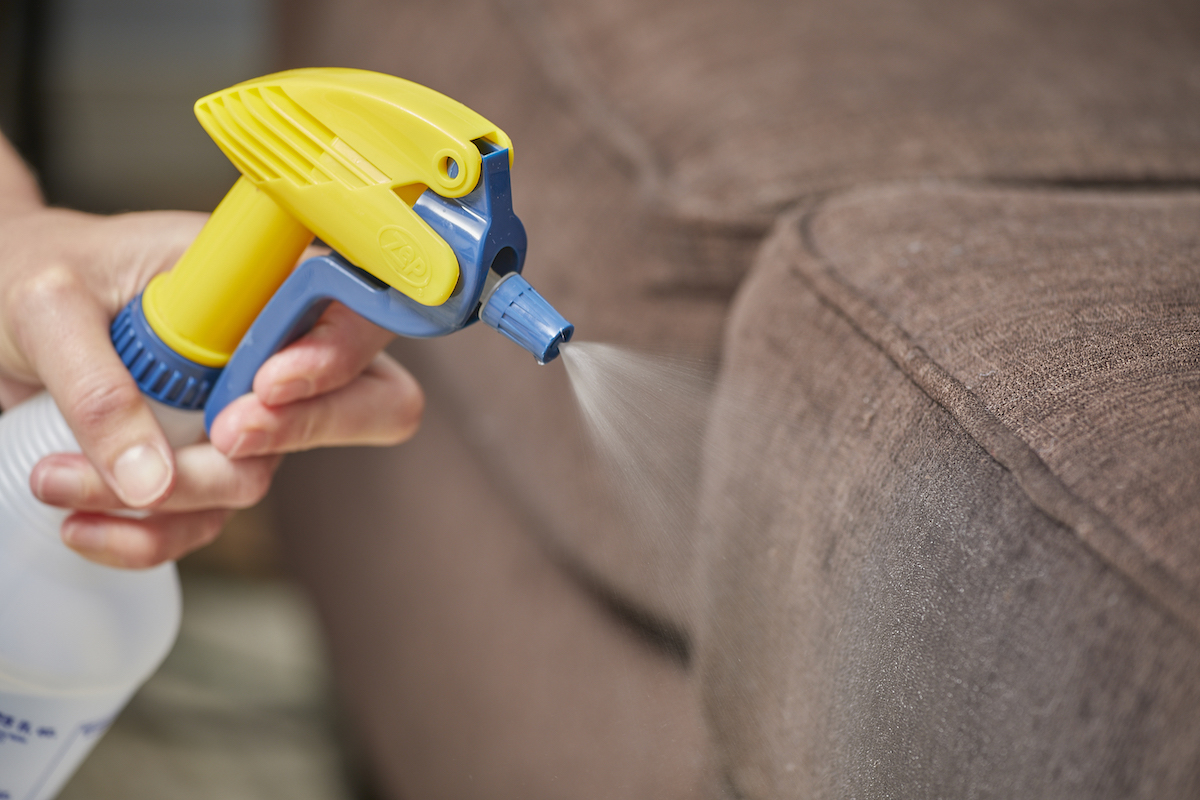We may earn revenue from the products available on this page and participate in affiliate programs. Learn More ›
Couches are designed as a comfortable spot to sit and relax day in, day out. Unfortunately, this means keeping a couch clean can feel like a near-impossible task. Whether your challenges include little ones who deposit crumbs everywhere they go, household members accidentally spilling drinks on the sofa, or a well-worn upholstery that’s been in use for many years, it’s probably time to give your couch a good cleaning.
As with cleaning the rest of your furniture, the best way to clean a couch can vary slightly based on its material. No matter if yours has fabric, leather, or suede upholstery, read on to find out how to clean your couch so it looks its best and is ready for another relaxing evening.
Tools & Materials
Bobvila.com may earn a commission from purchases made through these links.
- Vacuum cleaner with upholstery attachments
- Microfiber cloth
- Sponge
- Suede brush (optional)
- Fan (optional)
Before You Begin
Before cleaning upholstery on a couch, it is essential to consider its material and check for specific manufacturer instructions on cleaning. The below steps cover how to generally clean fabric, leather, and suede couches, but you should always defer to your sofa’s manufacturer when it comes to the types of cleaners and tools it can handle.
Step 1: Vacuum the upholstery.
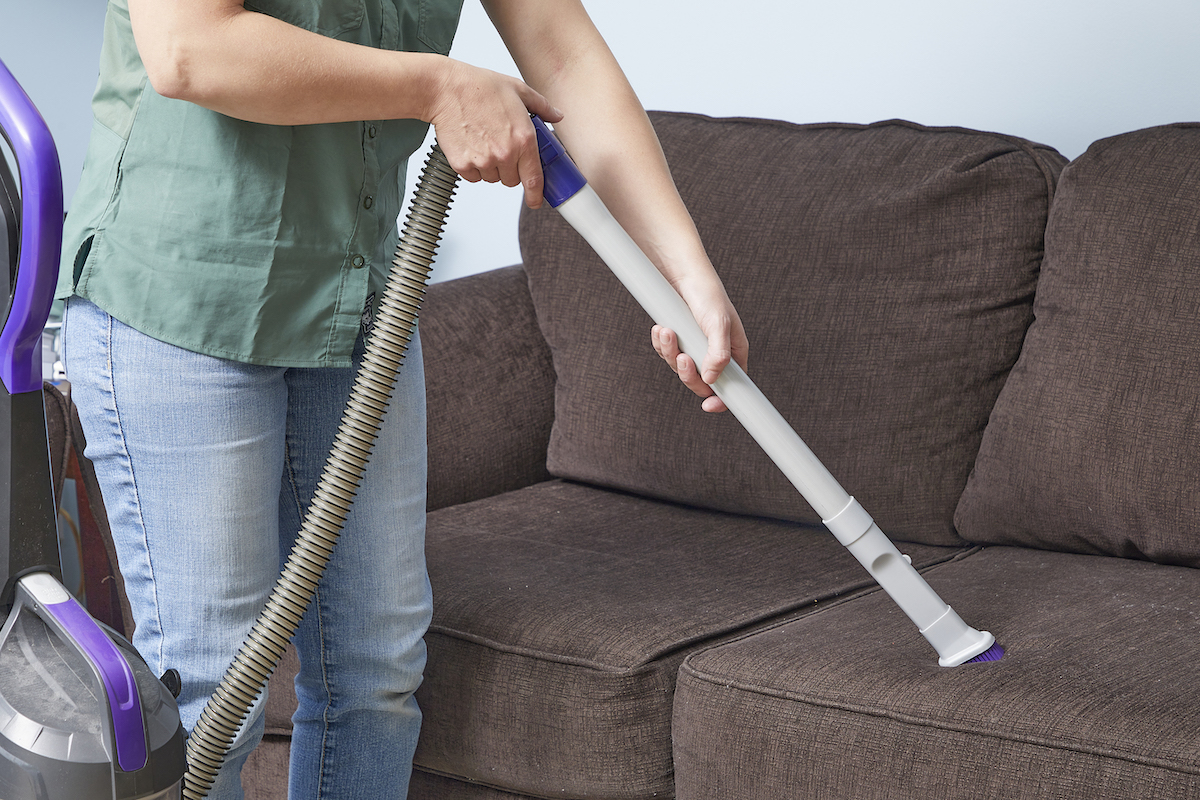
When it comes to how to deep clean a couch, the first step is vacuuming the upholstery. Vacuuming removes loose dirt, crumbs, pet hair, and other debris. When vacuuming, be sure to use the correct vacuum attachments, clean both sides of the cushions (if they’re removable), and reach crevices where crumbs and debris can hide.
Vacuum every side of your couch, even the back if it is up against the wall. Either a handheld couch vacuum or an upright vacuum’s upholstery tools will help with this step.
Step 2: Wipe down the couch legs.
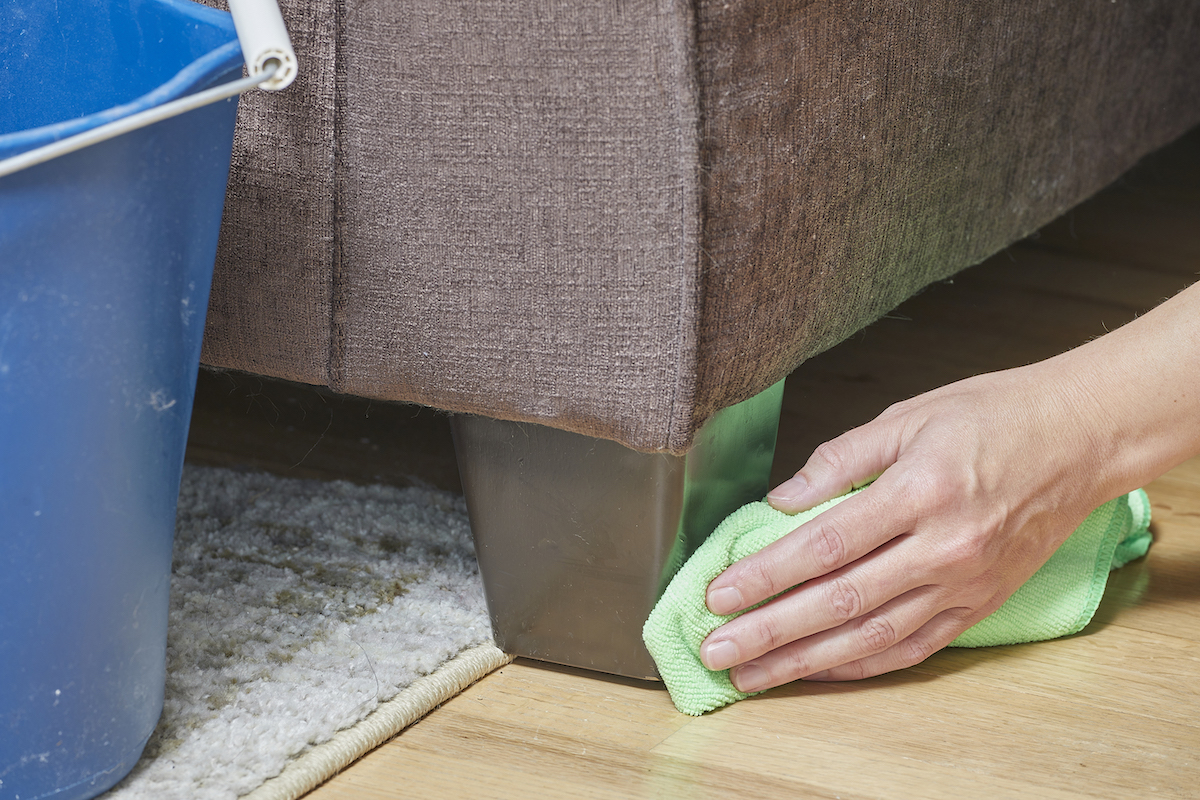
After removing loose debris with the vacuum, turn your attention to the non-fabric parts of the couch, such as the feet. To clean these sections, prepare a cleaning solution with warm water and a few drops of mild liquid dish soap.
Use a microfiber cloth or cellulose sponge to wipe down these areas using the water and dish soap solution. After cleaning the non-fabric surfaces, dry them using a clean microfiber cloth.
Step 3: Remove stains with an appropriate cleaning solution.
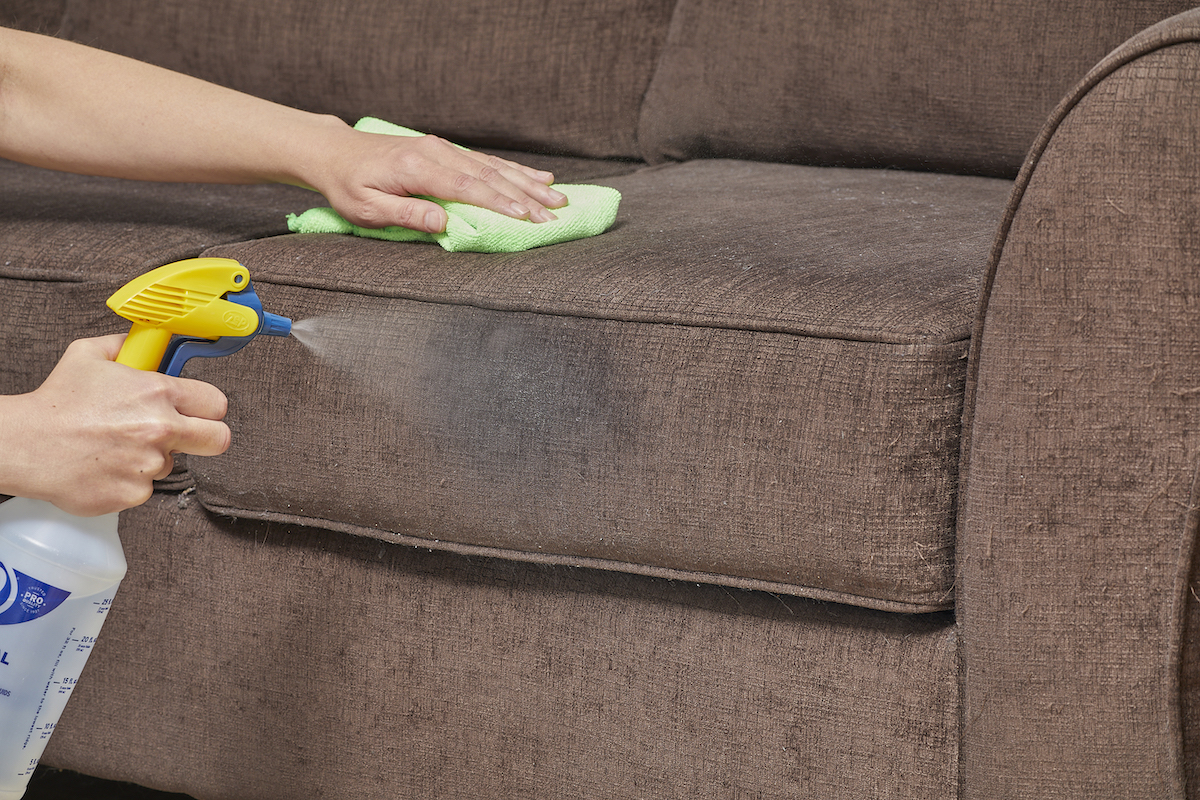
The appropriate cleaning solution for removing stains varies depending on whether you are looking for how to clean a fabric couch, leather couch, or suede couch. Follow the recipes listed below to create a DIY couch stain remover based on your sofa’s fabric type.
Always test the stain remover solution on an inconspicuous spot—such as underneath the sofa or on the back of a cushion—before trying to remove stains with it.
Fabric Couch
If you’re looking for how to clean couch fabric with a W label, begin by combining a mixture of ½ cup warm water, ½ cup distilled white vinegar, and 1 teaspoon of Castile soap or mild dish soap in a spray bottle. Spray the stain with the solution and use a sponge to blot it. Take care not to rub the stain, as it could cause it to spread.
After blotting, dampen a microfiber towel with plain water and blot the area again to remove the soapy residue. Rinse and repeat as necessary, then blot the spot dry with a clean microfiber cloth.
Leather Couch
The steps for how to clean a leather couch are similar to those for cleaning a fabric couch. However, take care to make sure the leather does not become saturated with water.
Begin by combining equal parts distilled white vinegar and water (approximately ½ cup of each) in a small bucket. Then, dip the corner of a clean microfiber cloth in the bucket and wring out the excess water. Use the cloth to gently wipe any stained areas. Stop frequently to rinse the cloth and avoid spreading dirt around. Use a dry microfiber cloth to dry all of the areas that you cleaned.
Suede Couch
Because of its very fine fibers, cleaning a suede couch can be challenging. Whenever possible, it’s best to act quickly when cleaning up messes and spills as liquids bead up on the surface of the tight weave before they soak in. Cornstarch can help absorb oily residues left on suede sofas. After removing the stain residue from a suede couch, use a suede brush to restore the fabric’s finish.
Step 4: Allow the couch to dry completely.

After cleaning and removing stains from a couch, it is essential to let it dry fully (if applicable). If there is any excess water or cleaner on the sofa, use a dry microfiber cloth to soak it up. Then, give the sofa plenty of time to air dry. When cushions stay wet for too long, it can cause mildew to form.
If you live in a humid climate, consider turning on the ceiling fan or pointing a floor fan directly at the sofa to help it dry more quickly.
Other Helpful Tools for Cleaning a Couch
There are additional tools that can help with couch cleaning. Investing in some of these products can speed up the process of cleaning your couch or give it a more thorough cleaning than may otherwise be possible.
Lint Roller
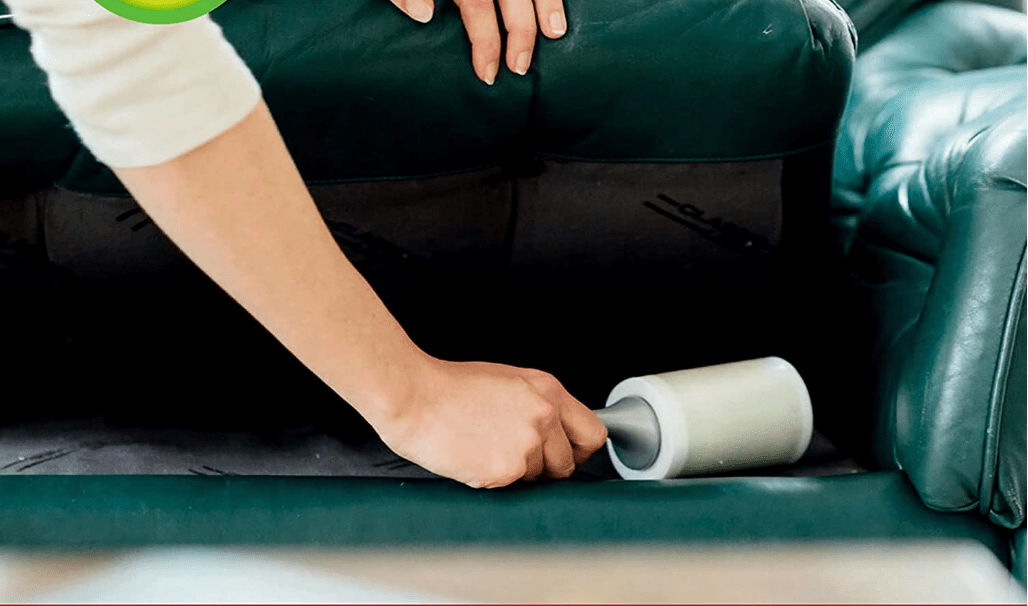
Lint rollers can be very useful when cleaning a fabric, microfiber, or dry-clean-only couch, especially in homes with canine or feline friends. Rolling a lint roller tool back and forth over a couch can help pick up loose pet hairs and other small debris.
Our Recommendation: Scotch-Brite Lint Roller Value Pack on Amazon for $26.85. The five lint rollers in this pack effectively remove lint, fuzz, hair, and pet fur from a variety of fabrics.
Upholstery Cleaning Solution
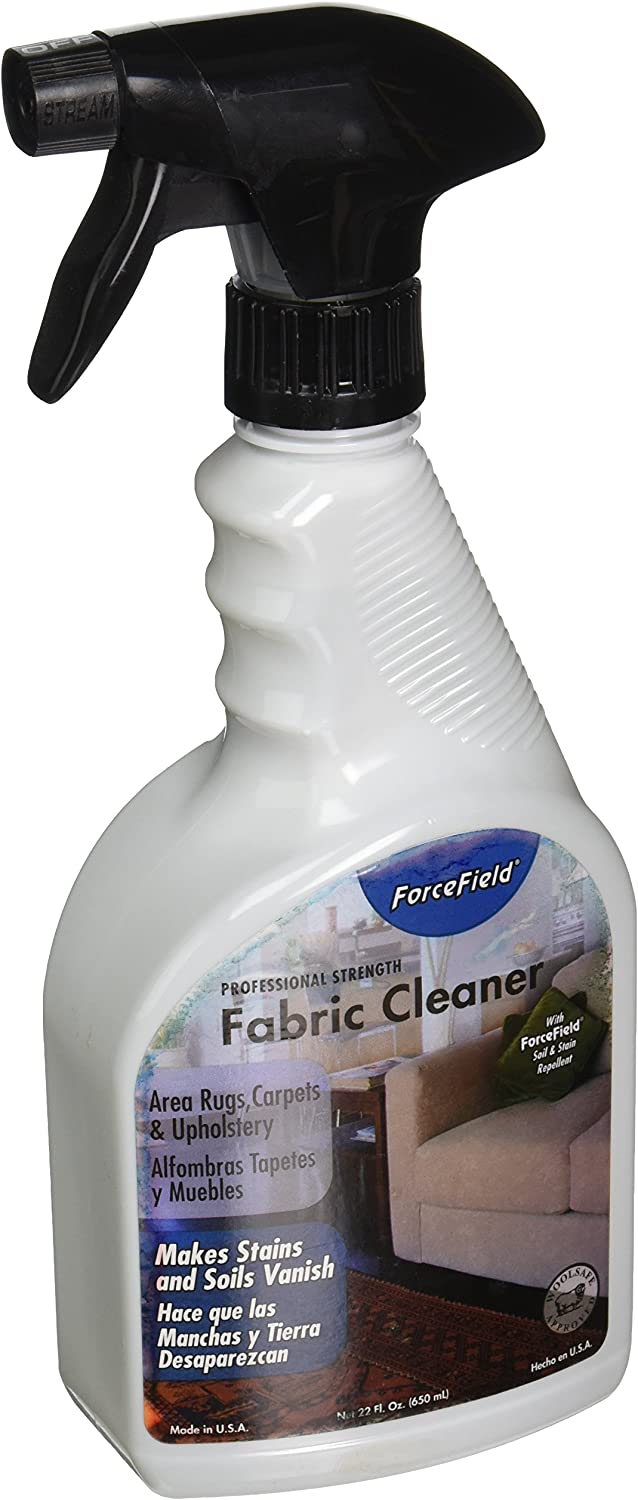
An upholstery cleaning solution or spray makes for a good couch cleaner with suitable fabric types. Spraying these solutions onto the surface of the couch works to pull dirt to the surface, allowing you to wipe it off using a microfiber cloth.
Our Recommendation: ForceField Professional Strength Fabric Cleaner on Amazon for $9.99. This cleaning solution removes a variety of odors and stains—including dirt and fluids—from fabric upholstery.
Upholstery Cleaner
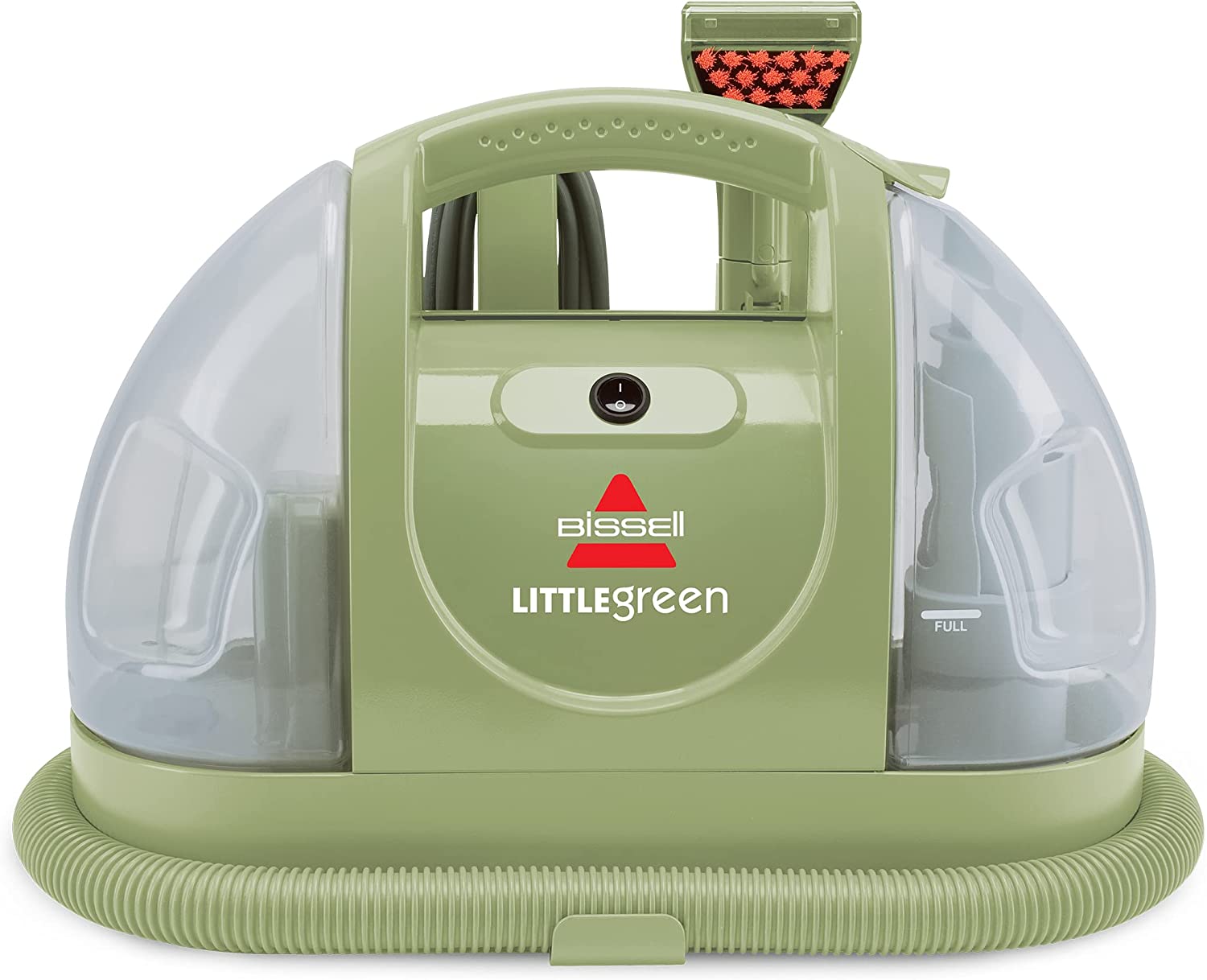
An upholstery cleaner—which uses water, a cleaning solution, and suction—to remove stains and debris, can also come in handy when cleaning a couch. Many of these machines include a powerful scrubbing brush with suction to help loosen and remove stains. If you don’t want to purchase a machine, you can also look into upholstery cleaner rental options in your area.
Our Recommendation: Bissell Little Green Carpet and Upholstery Deep Cleaner on Amazon for $123.59. This compact upholstery cleaner is lightweight, yet powerful enough to effectively pull stains and debris out of a couch’s upholstery.
Upholstery Steam Cleaner
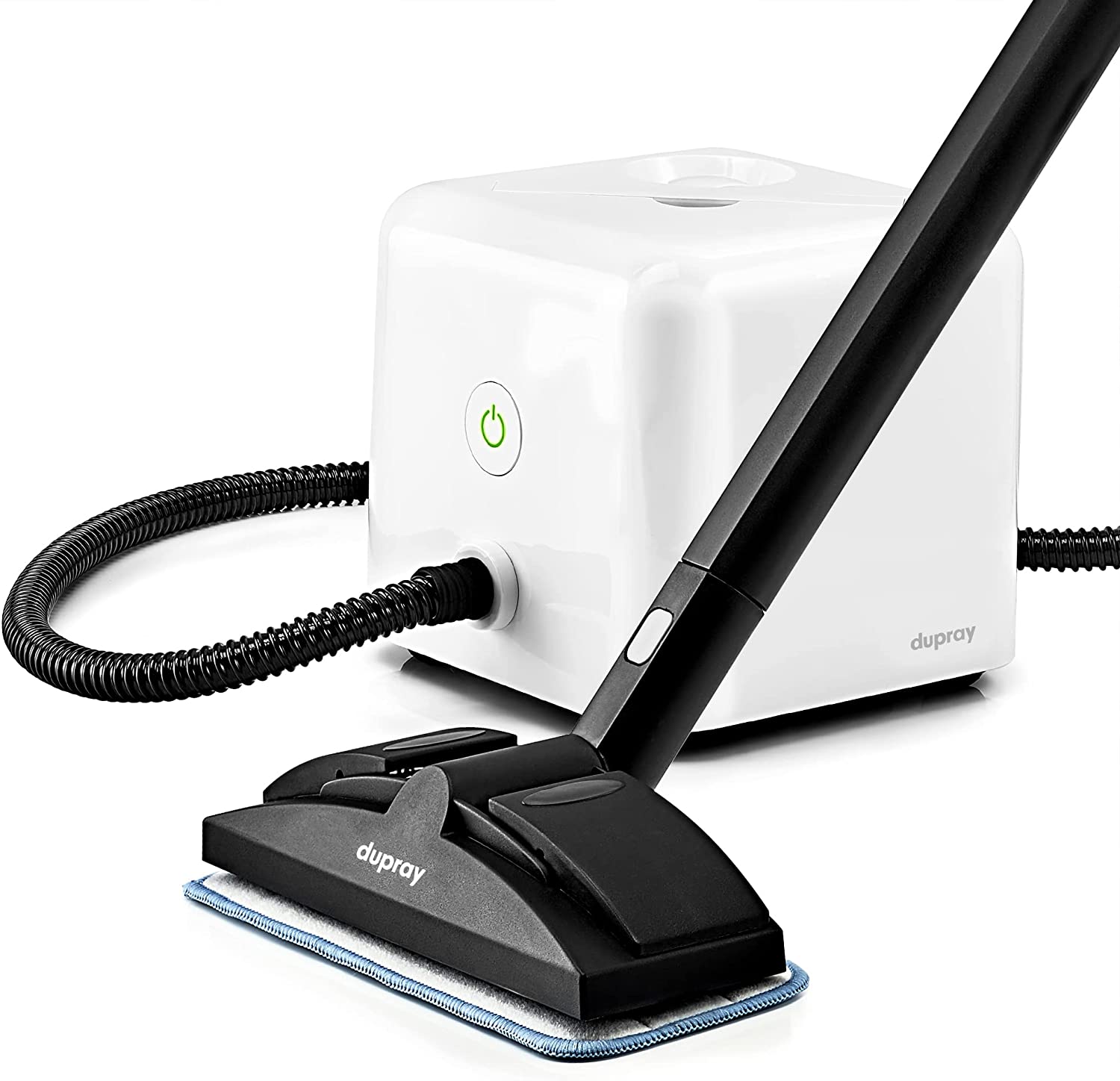
An upholstery steam cleaner uses pressurized steam to remove filth and stains. Using a steam cleaner is also a good option if you’re looking for how to disinfect a couch, as the hot steam works to kill bacteria and germs. Only use a steam cleaner when water-based cleaners are recommended.
Our Recommendation: Dupray Neat Steam Cleaner on Amazon for $174.89
With its 17-piece accessory kit, this steam cleaner can sanitize a cough with ease, as well as flooring, appliances, grout, bathrooms, and more.
Leather Conditioner
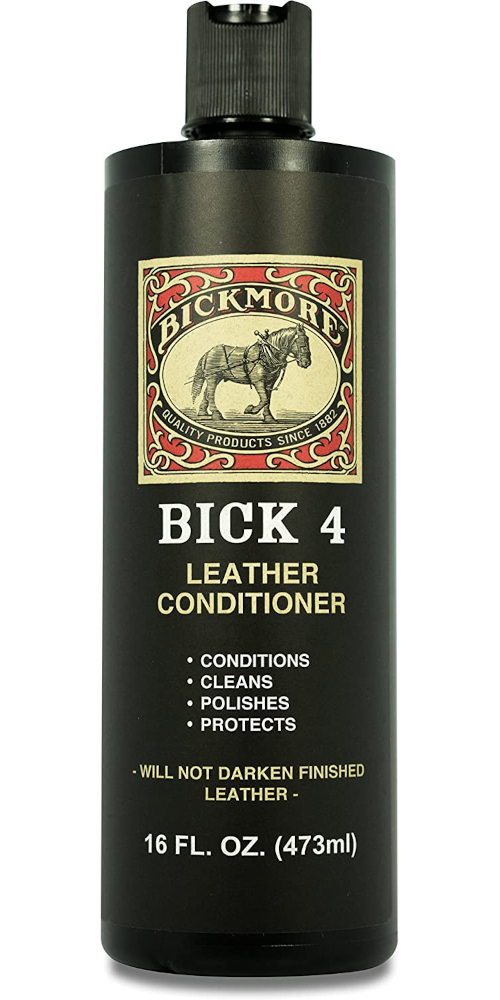
An important step of leather couch cleaning is to apply a leather conditioner after treating and removing stains. Cleaning with water can remove some of the natural oils from the leather, leaving it prone to drying out and cracking. A leather conditioner will help restore the moisture of the leather, leaving it soft and supple.
Our Recommendation: Bickmore Bick 4 Leather Conditioner on Amazon for $16.99
This leather conditioner’s wax-free formula will help keep leather couches moisturized and free of build-up.
Final Thoughts

As one of the most comfortable places to sit in a home, couches inevitably become dirty or accumulate stained over time. However, with the proper tools and techniques, it’s easy to remove debris and stains to keep a couch clean. Before attempting to clean your couch, though, remember to check the label for the cleaning code to make sure you use an approved cleaning solution.
The prices listed here are accurate as of October 10, 2024.

